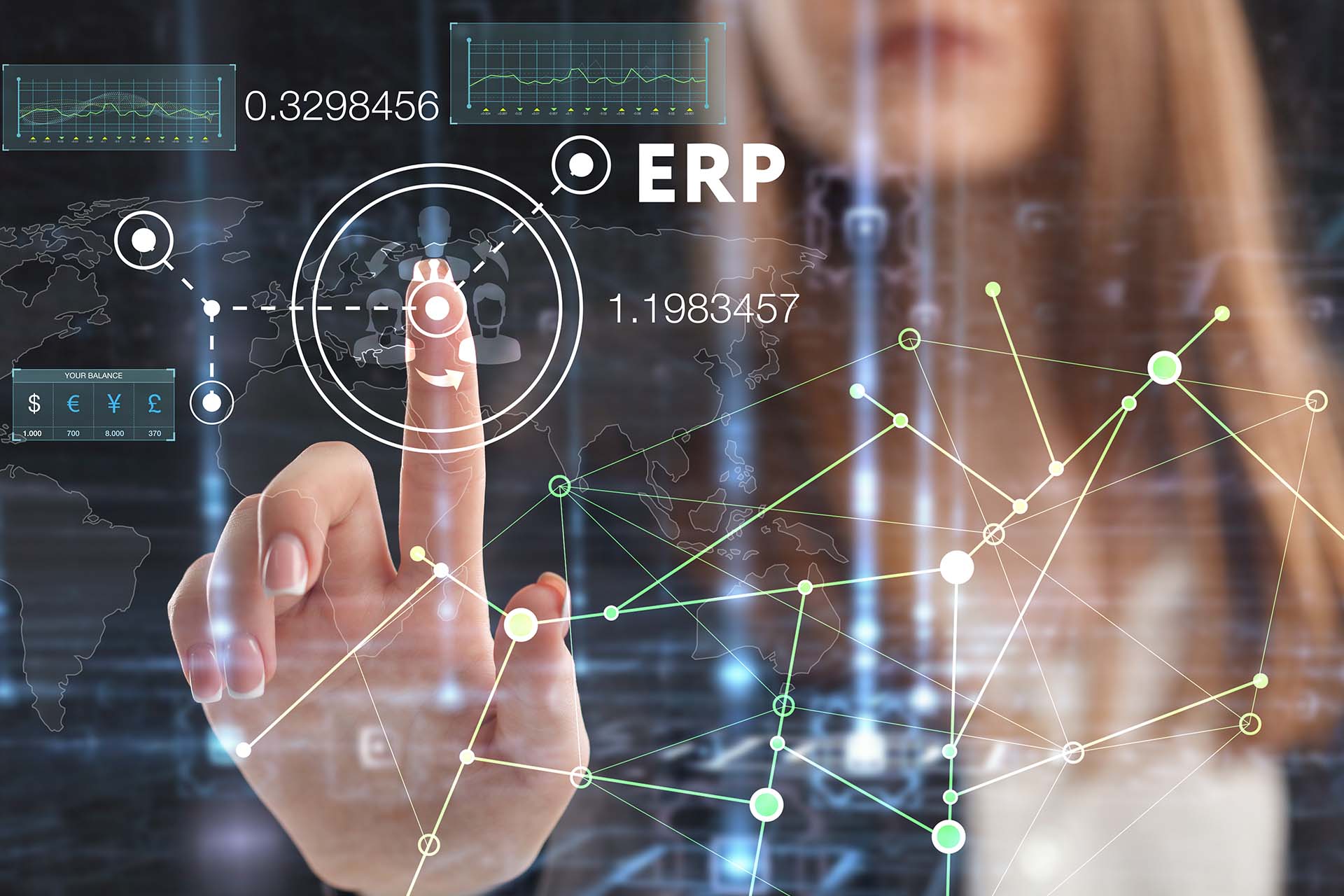 The procurement of an ERP system often becomes topical as the company grows. When practical routines and the amount of manual work grow too dominant in daily activities, ERP might be an answer to your challenges.
The procurement of an ERP system often becomes topical as the company grows. When practical routines and the amount of manual work grow too dominant in daily activities, ERP might be an answer to your challenges.
A modern ERP system steers work and facilitates routines for all, from the management to salespeople, installation staff and production employees. With a modern ERP system, it is possible to eliminate unnecessary work steps thus not only making work more efficient but also increasing its meaningfulness. ERP collects business data conveniently in one place enhancing work planning, improving work quality and enabling decision-making that is genuinely based on data.
However, the plethora of choice in the ERP system market today makes system selection challenging. Which factors should you then take into account when comparing different systems?
Careful groundwork supports system selection
Before starting to compare different ERP systems, you should be well acquainted with the current state of your business, processes and how they function, requirements and targets set for resource planning, as well as any special features of your business. Once the groundwork is done, it is time to pick the most potential system from the abundant offering for a more detailed comparison.
First, it is useful to chart which ERP systems are commonly used in the industry, for example, by identifying systems used by competitors and checking the references of different suppliers. Your own choice should not be based on competitors’ selections or the most typical solutions used in the business sector; however, they can provide guidelines for the comparison.
After picking a few of the most interesting alternatives to your list based on references, it is good to concentrate on the following questions:
- What are the basic features of the system? Are some key features missing and if so, can the system be customized?
- To what type of environment has it been designed?
- Is the system flexible and scalable to changing needs?
- Is the system modular?
- What is the lifecycle of the system and in which stage of its lifecycle is it now?
- What is the future potential of the system? How is it being developed? Does it use modern technology?
- What are the system’s integration possibilities?
- What is its user interface like? What are the possibilities for mobile use?
- Deployment and maintenance costs? What is the payback time?
The result of the analysis, however thorough, can be that an ERP system perfectly meeting the needs of your business is not available. Therefore, in the first place, pay attention to the responsiveness of the ERP system; that is, its ability to be customized and the supplier's capacity for further development.
Do not underestimate the importance of modularity and agility of the system partner
Often, the most sensible and cost-effective choice is a modular ERP that includes the most critical features for you and offers future growth potential. Modularity enables further development of company-specific features. During the selection process, it is important to gaze out firmly at the horizon to avoid the need of a system change only after a couple of years. A good ERP system serves longer.
In addition to the system itself, an agile system supplier plays a key role. Besides the system’s features and details, also pay attention to the system provider’s competence and active approach in system development. Perhaps you cannot yet name your future needs, therefore, it is good to select a supplier who is already a step ahead in the development. In this way, you can ensure that the system is also likely to adapt to your future needs and that the system maintenance will not stop in the immediate future.
When selecting a suitable partner, aspects worth considering include: the partner’s expertise in the business sector, financial position, organization size, technical skill level, resources and capacity for further system development. An experienced partner can make use of best practices and, whenever necessary, offer non-standard solutions if they meet the customer’s need in the best way.
Did you get interested?
Discover the modular Total ERP by Pinja solution: Total ERP by Pinja – an ERP system that keeps your company’s processes flexible and changeable.
Read more
Successful ERP system procurement – Three steps to selecting a suitable ERP system
From sales to installation – a modular ERP system makes room for growth
Success story: Greenled

Ari Harjula
I work at Pinja as the head of Total business unit. In addition to our ERP solutions, I help our customer companies streamline business and knowledge management with various BI and integration solutions. In my work, I am particularly inspired by interesting customerships and solving customers' diverse challenges. Due to my background in industrial economics and process industry, the company’s production processes as well as building bridges between technology, people and commerce are close to my heart.
Back to the Pinja Blog
Categories
- Career at Pinja (68)
- Manufacturing (46)
- Knowledge Management (45)
- Production Development (44)
- Software Partnership & Tools (42)
- Sustainability (37)
- Wood and Forestry (37)
- Bioenergy and Recycling (29)
- IT Support and Outsourcing (24)
- Ecommerce (23)
- Maintenance (22)
- Artificial Intelligence and Machine Learning (15)
- Public Services (9)
- Compliance (1)